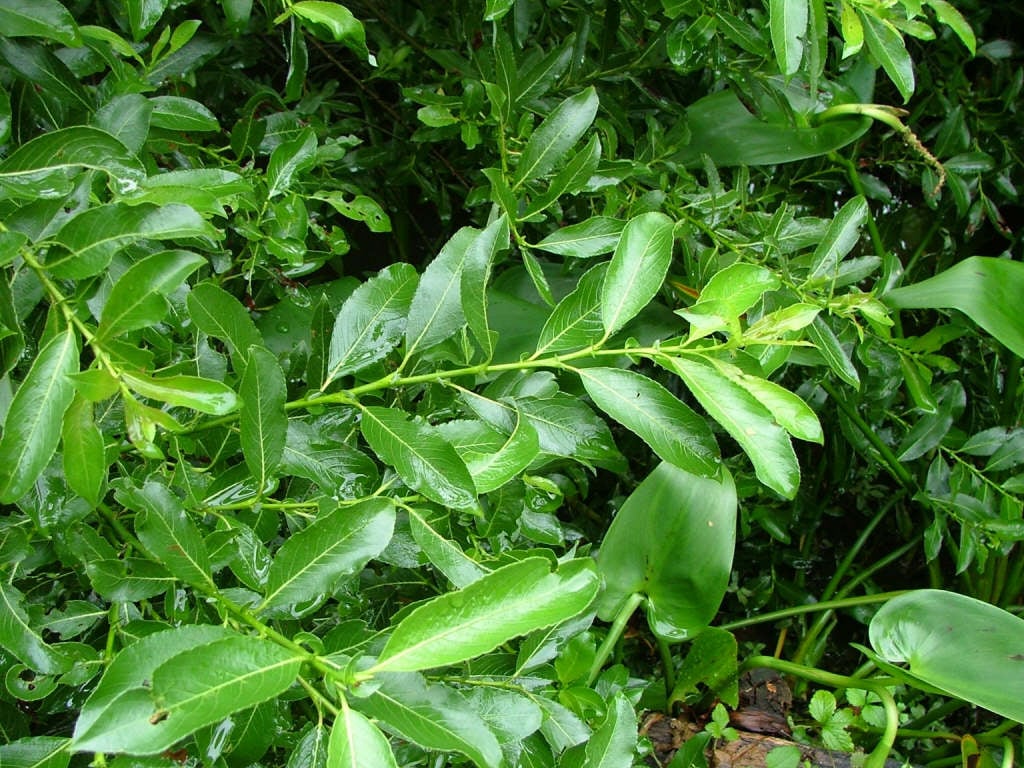Salix gracilistyla 'Melanostachys' (m)

black willow
A bushy shrub to 3m tall, with oval, glossy leaves that are grey-hairy when young; showy black catkins open in early spring and have orange-red anthers that turn yellow as they mature
Synonyms
Salix 'Melanostachys'Salix 'Kuro-me'
see moreSalix 'Kurome'
Salix 'Kuroyanagi'
Salix 'Kureneko'
Salix melanostachys
Salix kuru-yanagi
Salix gracilistyla var. melanostachys

Buy this plant
Size
Ultimate height
2.5–4 metresTime to ultimate height
5–10 yearsUltimate spread
2.5–4 metresGrowing conditions
Moisture
Moist but well–drainedpH
Acid, Alkaline, NeutralColour & scent
| Stem | Flower | Foliage | Fruit | |
| Spring | Black Red Yellow | Green | ||
|---|---|---|---|---|
| Summer | Green | |||
| Autumn | ||||
| Winter |
Position
- Full sun
Aspect
South–facing or West–facing
Exposure
Exposed or Sheltered Hardiness
H5Botanical details
- Family
- Salicaceae
- Native to GB / Ireland
- No
- Foliage
- Deciduous
- Habit
- Bushy
- Genus
Salix are deciduous shrubs and trees of diverse habit, with simple leaves and tiny flowers in catkins, male and female usually on separate plants. Some are valued for their brightly coloured winter shoots, others for their foliage or showy male catkins
- Name status
Accepted
How to grow
Cultivation
Grow in any deep, moist but well-drained soil in full sun. Avoid shallow chalk soil
Propagation
Root softwood cuttings in early summer or hardwood cuttings in winter
Suggested planting locations and garden types
- City and courtyard gardens
- Coastal
- Cottage and informal garden
- Wildlife gardens
- Flower borders and beds
Pruning
Pruning group 7, every 1-3 years in March for coloured winter shoots
Pests
May be susceptible to aphids, caterpillars, leaf beetles, sawflies, willow scale
Diseases
May be susceptible to willow anthracnose, scab, canker, honey fungus and rust
Get involved
The Royal Horticultural Society is the UK’s leading gardening charity. We aim to enrich everyone’s life through plants, and make the UK a greener and more beautiful place.